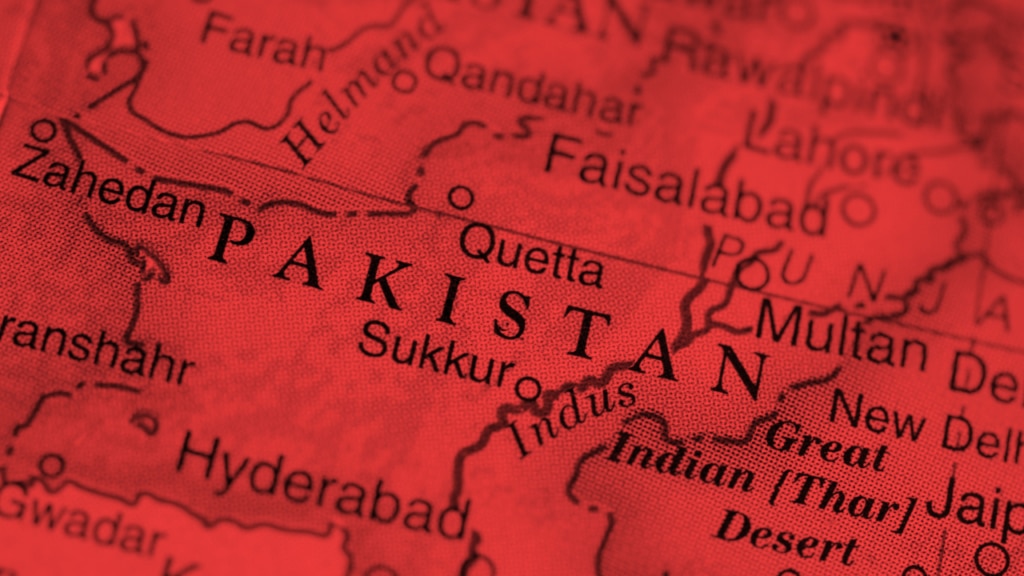Mona Farooq, USA

It does not take a foreign enemy to fracture a nation’s soul. Sometimes, it is the sanctioned hatred within that does the job best – quietly, thoroughly, with a frightening sense of righteousness.
In Pakistan, that fracture has a name: the persecution of Ahmadis.
What began as a political compromise in 1974, with the Second Amendment that declared Ahmadis non-Muslim, has metastasised into a full-blown state-sponsored apartheid. Under Ordinance XX (1984), Ahmadis are not only banned from identifying as Muslims, but they are also criminalised for acts as basic as greeting someone with “Assalamu Alaikum” or offering congregational prayer. The law strips them not only of their religious freedom but also of their civic dignity, effectively branding them as second-class citizens in the country of their birth.
This is not merely social exclusion; it is institutionalised erasure.
Once hailed as national assets, men like Sir Zafrulla Khanra, Pakistan’s first foreign minister, or Nobel Laureate Dr Abdus Salam, Ahmadis are now systematically pushed out of public life.
Their mosques are razed, their graves desecrated, their identities criminalised and their worship violently interrupted.
The cost of this systemic hatred is measured in blood.
On 16 May 2025, Dr Sheikh Mahmood Ahmad, a respected UK-trained gastroenterologist, was gunned down in Sargodha, Punjab, Pakistan. He was 58 – a father, a son, a patriot. Despite being threatened and pushed out of his medical post due to his faith, he stayed. He healed. He served. Until hate silenced him.
The National Commission for Human Rights (NCHR) condemned the murder, declaring:
“Ahmadiyyas are citizens of Pakistan. Their wanton murders, abuse and harassment must stop. Vigilante justice and mob violence must be addressed with a firm and speedy response.”
On 24 April, Muhammad Asif, a 19-year-old student in Kasur, was killed in a targeted attack in the village of Bhulair. The only son of his parents and brother to two sisters, his only “crime” was being an Ahmadi. Another Ahmadi man was also injured in the attack. The local community had long reported threats, but nothing was done.
Days earlier, Laeeq Cheema, a 47-year-old father of seven, was lynched in Karachi. He was beaten to death outside an Ahmadi mosque with bricks and sticks while a frenzied mob screamed anti-Ahmadi slogans. Worshippers had gathered for Friday prayers. It was a murder carried out in daylight, with the mosque as a backdrop and the state as a bystander.
The NCHR called the incident a “grave violation of fundamental rights and religious freedom,” asserting, “Hate-fueled violence has no place in any civilized society. Justice must prevail.” It further said:” This assassination is yet another tragic episode in the ongoing campaign of hate, persecution and violence against the Ahmadiyya Muslim Community across Pakistan, in the so-called name of God.”
But justice remains elusive. Even offering Salat is now dangerous for Ahmadi Muslims.
In March 2025, Dr Tahir Mahmood, a 72-year-old homoeopathic physician and president of his local Ahmadiyya chapter in Malir’s Khokrapar Colony, was arrested – his offence: leading Friday prayers. He was jailed under Pakistan’s anti-Ahmadi laws. He was ill, denied medication and died in custody in May. His death was not just tragic, it was deliberate negligence cloaked in legal pretext.
The Amnesty International report released on 11 March 2025, condemned the broader crackdown:
“The disturbing pattern of arbitrary arrests, harassment and violence against the Ahmadiyya community is in violation of their right to freedom of religion and belief. In the past two weeks alone, more than 60 Ahmadis, including children, have been unlawfully arrested in Pakistan.”
A day later, the International Human Rights Committee (IHRC) warned:
“A systematic crackdown on Ahmadi Muslims in Pakistan is unfolding. Since the start of 2025, persecution against Ahmadiyya Muslims in Pakistan has intensified […] Pakistani authorities – under pressure from the extremist group Tehreek-e-Labbaik Pakistan (TLP) – have participated in the destruction of six Ahmadiyya mosques across Punjab this year.”
These aren’t random events; they are the natural consequence of years of demonisation and legalised discrimination. From pulpits to political rallies, Ahmadis are relentlessly targeted. And the state’s silence is complicity.
And yet, the Ahmadiyya Muslim Community has responded not with violence, but with service. It builds schools. It runs hospitals. It educates. It prays. It perseveres.
But how many more physicians must be martyred? How many more fathers must be lynched? How many teenagers must be buried before Pakistan admits what this is – not just religious intolerance, but a slow-motion extermination of a community?
Pakistan stands today at a moral precipice. The choice is not between Ahmadis and others. The choice is between justice and complicity, between a future rooted in pluralism or a present mired in persecution.
If we wish to preserve the soul of this republic, we must begin by acknowledging what we have become. It is time – long past time – to disinfect the soul of this nation. Not just for Ahmadis, but for Pakistan itself.

